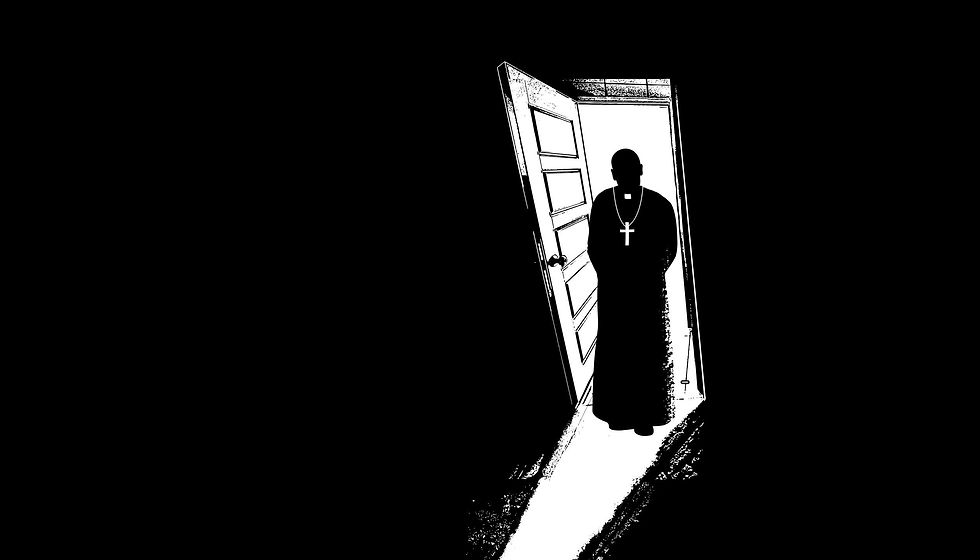When church leaders fall
- By Jeni Ann Flores and Daniel Klender
- Jun 6, 2021
- 4 min read

He was an incredibly intelligent, witty, prolific author and highly sought-after speaker, president of a successful, world-class organization that boasted of high-powered speakers defending the faith in high-level academic, social, military and business forums.
But months before he died of cancer, an investigation had started about allegations of rape and sexual harassment. The allegations were proven to be true. The revelations brought a tsunami of deep hurt and anger, leaving in its wake the flotsam and jetsam of wrecked lives and faith of his family, his organization, believers and followers all over the world, not to mention the lasting damage done to the women victims.
To its credit, this leader’s organization eventually recognized the egregious nature of the late leader’s sin.
“To be victimized by unwanted sexual contact, advances and behavior is horrendous. It is diametrically opposed to everything we believe about the value and dignity of every single person,” they posted on their website.
“That a leader under our care sinned against others so grievously pains us. We were trusted by our staff, our donors and the public to mentor, oversee and ensure...accountability...and in this we have failed. The findings of the investigation have caused us to take an extensive and humbling look at ways that we have fallen short, made mistakes and failed to love well. This is an ongoing process that will take significant time, but we are committed to it.”
Malcolm Muggeridge said all new news is old news happening to new people. Church leaders behaving badly is not something new. Yet it continually surprises us when it happens. Rightly or not, we put church leaders on a higher pedestal, expecting them to be immune to the evil within, exempt from the nature of humans that we all share, which scriptures describe as “desperately wicked and deceitful above all else.”
Four important questions burn in the minds of those like us who considered this church leader to be a mentor, a father figure, a hero:
1. Why make this dirty laundry public? A public platform requires public accountability.
ADVERTISEMENT
2. Does this mean the words preached by a fallen church leader now rings false? Not necessarily. Truth is truth, whether Hitler said it or Billy Graham. God used Balaam’s donkey to speak for him. Paul sat as a student under Gamaliel, an unregenerate rabbi. Spiritual giftedness does not always equate to spiritual maturity or integrity and ethics. Indeed, it is difficult to isolate the truth of words from the lies that an author lived. But in spiritual matters, if we get fired up about human beings, we set ourselves up for disappointment. We are prone to invest too much trust in humans, not recognizing that they have feet of clay.
3. How can we help prevent this from happening to others? In this particular case, the organization at first denied the allegations and defended its leader.
After an internal investigation, victims were at first attacked, adding injury to their wounds. Whistleblowers were isolated. Senior leaders were so emotionally and financially vested in his success. Organizations, especially religious ones, should regularly engage in sober, objective and independent look at similar potentially emotional blind spots.
The keyword here is independent.
“We have engaged Guidepost Solutions, a management/compliance consulting firm, and are providing full disclosure to them to conduct a thorough evaluation…, including...structures, culture, policies, processes, finances, and practices. Guidepost was chosen for its independence, depth of skill and expertise, and emphasis on top-down and grassroots cultural reform.”
ADVERTISEMENT
The Marine Corps takes care of people they think are at high risk for DUI, marriage, drugs, alcohol and other issues. Marines are closely monitored using risk assessment and risk prevention. The age-old preventive maintenance of mutual accountability prevents slow leaks in ministry and careers. Success makes us vulnerable. Most people fail not for lack of ability but for lack of control.
4. What now? Steps must be taken to restore both the victims and offenders. This particular leader’s organization has engaged a prominent victim advocate to “educate and advise the ...senior leadership in understanding trauma and abuse...(and) to serve as a confidential liaison with survivors to help guide the process of care, justice and restitution.”
An offender should also be allowed a restorative process (though it is too late now for this particular leader.) Many men in the brig are sex offenders. We must throw a life preserver, not an anchor, to those who fall. When a man goes overboard, we send swimmers and save a life, leaving no one behind. It is what the church is called to do. We can do better.
Jeni Ann Flores is an educator and blogger. You may read more of her writings at www.teacherseditionflores.blogspot.com. You may reach her at LinkedIn or at teachersedi tion.flores@gmail.com.
Daniel Klender serves as a Navy chaplain at Marine Corps Air Station Miramar. He has ministered to sailors and Marines in the Middle East, Europe and Asia. He is the author of three books, among them “Living With The End in View”. You may reach him on Twitter or at dmk- lender@hotmail.com.
Subscribe to
our digital
monthly edition








